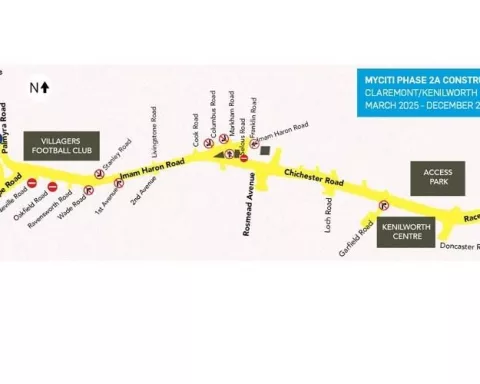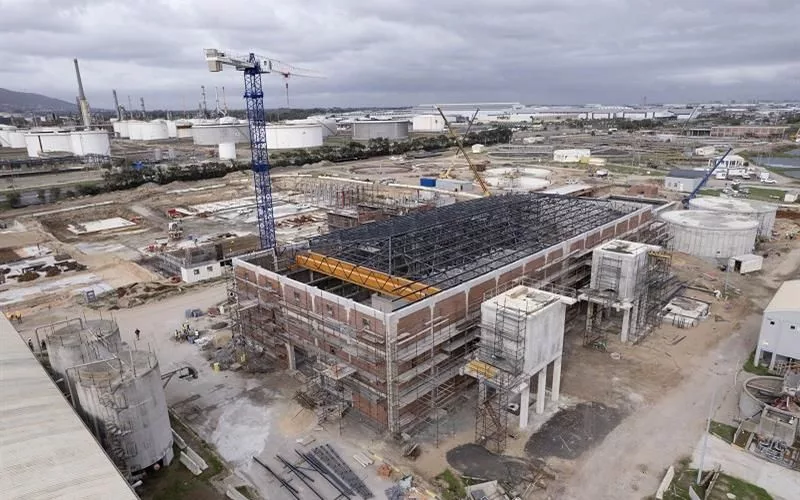The 13th SARA Rail International Conference and Exhibition, held in South Africa in August 2024, was a vital platform for discussions on the future of rail transport in Southern Africa. The rail sector in the region faces many challenges, including aging infrastructure, insufficient funding, safety concerns, security issues, and capacity constraints. The conference emphasized the importance of innovation, collaboration, and sustainability in railways and highlighted the need for investment in skills development. South Africa is making decisive strides towards building a modern and efficient rail sector, and the decisions made at the conference will undoubtedly influence the future of rail transport in the region.
Shaping the Future of Railways in Southern Africa: Insights from the 13th SARA Rail International Conference and Exhibition. The 13th annual International Conference and Exhibition of the Southern African Railways Association (SARA) held discussions about the future of rail transport in the Southern African Development Community (SADC) region and across Africa. The rail sector in the SADC region is faced with numerous pressing challenges including aging infrastructure, insufficient funding, safety concerns, security issues, and capacity constraints.
August 2024 was an instrumental month for the rail industry in Southern Africa. The esteemed Sandton Convention Centre in the Republic of South Africa was the venue for the 13th annual International Conference and Exhibition of the Southern African Railways Association (SARA). Over the years, this event has gained prominence as a crucial platform for discussions about the future of rail transport in the Southern African Development Community (SADC) region and across Africa.
The conference was inaugurated by the Honourable Minister of Transport of The Republic Of South Africa, Barbara Creecy. Her impactful opening address presented the conference not as just another formal gathering but as a collective commitment to furthering a vital industry that holds the key to the region’s economic prosperity and global competitive edge.
Tracing the Rails of Opportunity from Cape Town
The historical significance of railways in Africa has been profound since their establishment in the 19th century, commencing in Cape Town. Today, the challenge lies in penning the next phase of this narrative. This includes harnessing the power of rail to enhance socio-economic growth and facilitate the efficient movement of goods and people across the region.
The conference underscored South Africa’s commitment to the African Union’s Program for Infrastructure Development in Africa and the AU Agenda 2063. Minister Creecy, during her speech, highlighted the urgency of the task at hand, referring to the gathering as a “junction of opportunity and transformation for the rail industry” in the region.
Confronting the Hurdles Faced by the Rail Sector
The rail sector in the SADC region is faced with numerous pressing challenges. These include aging infrastructure, insufficient funding, safety concerns, security issues, and capacity constraints. Additional complexities such as the need for greater regional integration, interoperability, and standardization require attention to ensure efficient and competitive rail services.
The role of railways in stimulating the region’s economic growth is pivotal. They significantly influence the cost structure of economies and play a crucial role in transporting bulk commodities like minerals, agricultural produce, and energy resources. Therefore, efficient rail networks are key to boosting the global market competitiveness of SADC products and services.
Emphasising Innovation, Collaboration, and Sustainability in Railways
The SARA Rail Conference and Exhibition convened innovators and collaborators who are shaping the future of railways. The conference’s theme, “Boosting Continental Trade via Rail: Investments in African Railways for the Sustainable Development of the Continent,” served as a call to arms. It urged participants to ensure railways are safe, secure, reliable, and innovative.
Minister Creecy underscored the importance of integrating Environmental, Social, and Governance (ESG) principles in rail operations. Given the considerably lower carbon footprint of rail transport compared to other forms of transportation, this sector has the potential to lead the way in minimising environmental impact. Embracing cleaner fuels and cutting-edge technology in railway operations could position the SADC rail sector as a pioneer in the global transition towards sustainable transport.
Strengthening Human Capital in the Rail Sector
During her address, Minister Creecy identified human capital as a key element of a resilient and future-proof rail sector. She emphasised the need for investment in relevant skills across logistics, engineering, infrastructure development, and digitization. This need transcends national boundaries within the SADC region, making regional cooperation in skills development vital for the growth and modernisation of the rail sector.
Rejuvenating South Africa’s Rail Sector
South Africa is making decisive strides towards building an efficient, interconnected, and modern rail sector. These efforts encompass policy and regulatory measures aimed at reviving and updating the capacities and competencies of the railways. They include the implementation of the Freight Logistics Roadmap, enhancement of safety standards, and development of human capital.
A critical aspect of this vision is the support and development of the rolling stock manufacturing sector. The state-of-the-art Gibela factory in Nigel stands as a testament to this commitment. This facility manufactures modern, efficient passenger trains that comply with global standards and can meet the rolling stock needs of the region and the entire continent.
Navigating the Future of Rail Transport in the SADC Region
As we stand at the convergence of opportunity and transformation, the decisions and discussions at the 13th SARA Rail International Conference and Exhibition will undoubtedly influence the future of rail transport in our region. These decisions will dictate how we integrate, compete, and ultimately triumph in global markets.
Through this conference, SARA continues to establish its role as a regional think-tank, bringing together key stakeholders to ensure railways reclaim their vital role as the backbone of public and industrial transport. To realize the potential of SARA, it’s essential that each SADC country fully implements its rail strategy.
In conclusion, although the challenges faced by the rail sector are substantial, they are not insurmountable with dedication, collaboration, and innovation. As Minister Creecy officially declared the conference open, she appealed to everyone to support the promising rail sector initiatives that have the potential to unlock our region’s complete potential. Her words serve as a rallying cry for a future where railways are the driving force behind the prosperity of our region and the entire African continent.
1. What was the purpose of the 13th SARA Rail International Conference and Exhibition?
The purpose of the 13th SARA Rail International Conference and Exhibition was to serve as a platform for discussions on the future of rail transport in Southern Africa.
2. What are some of the challenges faced by the rail sector in the SADC region?
Some of the challenges faced by the rail sector in the SADC region include aging infrastructure, insufficient funding, safety concerns, security issues, and capacity constraints.
3. How can the rail sector contribute to the economic growth of the region?
The rail sector can contribute to the economic growth of the region by significantly influencing the cost structure of economies and playing a crucial role in transporting bulk commodities like minerals, agricultural produce, and energy resources.
4. What was the theme of the SARA Rail Conference and Exhibition?
The theme of the SARA Rail Conference and Exhibition was “Boosting Continental Trade via Rail: Investments in African Railways for the Sustainable Development of the Continent.”
5. Why is human capital development important for the rail sector?
Human capital development is important for the rail sector as it is a key element of a resilient and future-proof rail sector. Investment in relevant skills across logistics, engineering, infrastructure development, and digitization is necessary for the growth and modernization of the rail sector.
6. What efforts is South Africa making towards building an efficient and modern rail sector?
South Africa is making decisive strides towards building an efficient, interconnected, and modern rail sector through policy and regulatory measures aimed at reviving and updating the capacities and competencies of the railways, enhancing safety standards, and developing human capital. Additionally, there is support and development for the rolling stock manufacturing sector.












